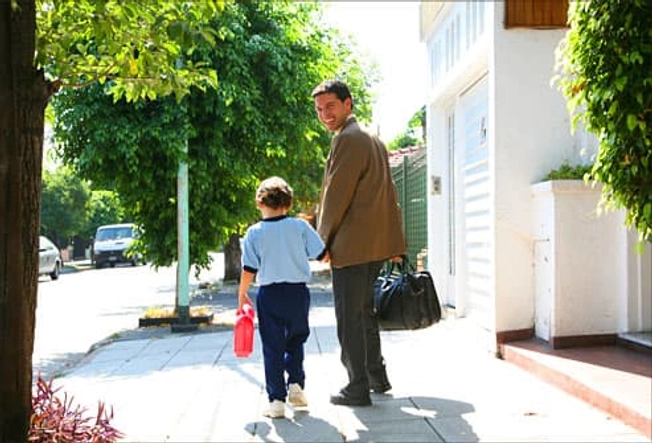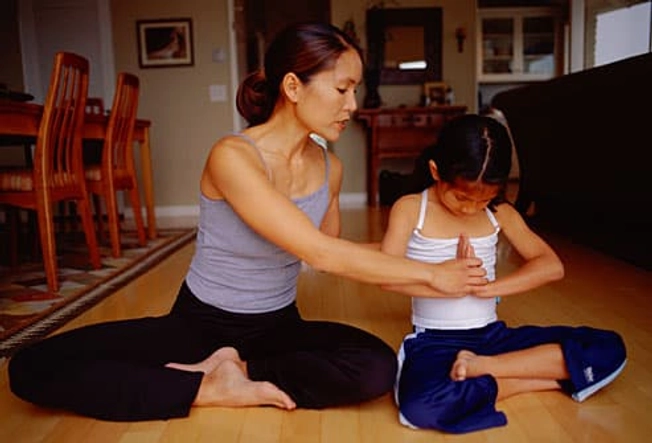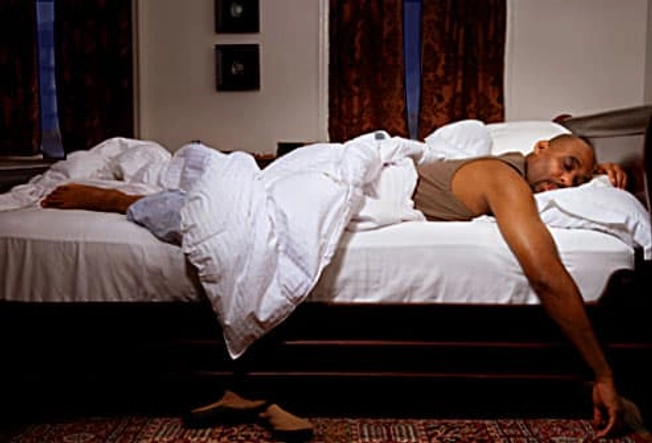Slideshow: A Day of Healthful Choices for the Whole Family


6:30 a.m. Fuel Up First Thing
If you're just waking up, you probably haven't eaten in at least 10 hours. Don't head out before fueling up! A healthy breakfast can give you and your kids a sharper mind, more energy, and better total nutrition for the day. A balanced breakfast includes protein, carbs, and fiber. Try spreading peanut butter or melted low-fat cheese on a whole-wheat English muffin.

7 a.m. Get Moving
Before heading out for the day, take a brisk 30-minute walk around your neighborhood. You'll feel invigorated, and you'll chip away at the 150 minutes of moderate-intensity activity that we need every week. Morning exercise may help you lower your blood pressure and daily levels of triglycerides (unhealthy fats) in your system. As a bonus, you may sleep better at night, too.

7:30 a.m. Protect Your Skin
Don't leave home without it -- sunscreen, that is. Sunscreen isn't just for the beach and the summer. Even in winter -- and even when it's cloudy -- UV rays can penetrate and sear your skin, particularly exposed areas like faces, ears, and the backs of the hands. Those are the areas dermatologists treat most for skin cancer.

7:45 a.m. Travel Light
Overloaded backpacks and purses can strain or injure muscles in the neck, shoulders, and back. Backpacks shouldn't contain more than 10% to 15% of the wearer's weight. Look for one with wide padded straps. Wear it on both shoulders to distribute weight evenly. Look for lightweight purses, briefcases, and totes, and pack only what you need. Alternate shoulders or the hand you carry it in. You can also try a wheeled bag and roll it on the ground.

8 a.m. Get More from Your Commute
Do you live within a couple of miles of work or school? Then ditch the car and try a walking commute. You'll save on gas, keep the environment cleaner, and start your day with a healthy glow. Be sure to wear supportive walking shoes. If you have to use a car, drivers and passengers -- even kids in school buses -- should buckle up or use an appropriate car seat, no matter how short the trip.

10:30 a.m. Snack Smart
Dump the doughnut tray before your next office meeting! Instead, serve healthier options like fresh fruit platters, mini muffins, whole-grain bagels, or yogurt. Maybe you don't need to serve food at your meeting at all. Maybe you can motivate your colleagues to attend by another method.

12:30 p.m. Try a Homemade Lunch
Borrow some ideas from kids' school lunches, especially if you eat at your desk. Bringing lunch from home lets you control calories and portion sizes. Kids and adults may like lunch fare that combines veggies with whole grains and protein. A fast, tasty, portable option: Spread hummus on a whole-wheat wrap. Layer on lean turkey breast and spinach leaves. Roll up and enjoy. Take (or send) fruit, yogurt, or whole-grain crackers for dessert or snacks.

2 p.m. Prevent Back Pain
Back pain is one of the top reasons people under age 45 stay home from work. Good posture is key to preventing back pain. If you work at a desk, as many of us do, put a foot rest under your chair and adjust your computer monitor so it's right in front of you. Get up and stretch several times a day.

3 p.m. Create a Good Study Space
Most children need supervision after school, whether it's at home or at an after-school facility. Promote good study habits by providing a quiet space and enough time to do homework. Television and Internet use should be limited, if not ruled out. But it's OK to occasionally close the books to prevent eye and neck fatigue. Healthy snacks like fruit, cereal, or whole-grain pretzels can feed youngsters without spoiling dinner appetites.

4 p.m. De-stress
Do deadlines, difficult relationships, and overscheduling leave your family stressed out? Stress can affect people of any age. Learn to spot the signs of stress and choose healthy ways to deal with it. Getting enough exercise and enough rest can help reduce stress. Spending time on favorite activities does, too. Adults and children may benefit from talking to trusted friends or family members about stressful situations.

5:30 p.m. Don't Overdo Happy Hour
There's nothing wrong with meeting colleagues for a drink after work. But if you drink alcohol, always drink in moderation. What is "moderation"? Only one drink a day for women -- that's one 12-ounce bottle of beer or a 5-ounce glass of wine -- and two for men. Drinking alcohol, even in moderation, can raise the chances of developing breast cancer, and its effect on your heart is still being studied.

6:30 p.m. Make Dinner a Family Affair
Research shows that kids benefit when families eat meals together frequently. They get better grades and enjoy improved nutrition. And the risks of depression and drug use decrease. Try to schedule family dinners as often as possible. If that's tough during the week, pack in as many meals together as you can on the weekend.

7:30 p.m. Turn Off the TV
If you reduce your screen time, you'll find a lot of extra time to engage in healthy family activities, like taking the dog for a walk, going for a bike ride, or playing a game. More TV time is linked with increased weight in children and adults. Limit TV watching and other types of screen time to an hour or less a day. Be sure to replace it with activities that get you and your family moving.

8:30 p.m. Sweeten Your Sleep Space
Set the stage for a peaceful night's sleep by keeping your bedroom calm, dark, and cool. Get a firm, supportive mattress to rest on. Use white noise -- radio static or nature sound CDs, for example -- to block out unwanted sounds like traffic and barking dogs. Keep distractions such as work projects, TV, and laptops out of the bedroom.

9 p.m. Obey Regular Bedtimes
Preschoolers need 11 to 13 hours of sleep a day, including naps. Once they drop naps, around age 5, school-age children still need 10 to 11 hours of sleep every night to promote good health. Keep kids' bedtime routines consistent. Don't push bedtimes back on weekends. To avoid sleep problems, have kids avoid caffeinated beverages. Keep noisy distractions like computer tablets, TVs and video games out of their bedrooms an hour ahead of bedtime.
